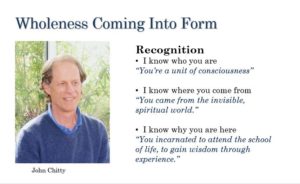By Kate White, MA, BCBMT, RCST®, CEIM, SEP
The Adverse Childhood Experiences Study launched the importance of trauma and trauma informed care in our health and educational systems. We suddenly had a measure of how early experiences in childhood could correlate with adult disease. Further studies have explored specific programs to help improve conditions for children, especially in education and community-based programs.
However, early experiences that influence adult disease are not just in childhood; they begin in the womb. Our earliest pioneers of fetal origins of adult disease such as David Barker, MD, PhD and Peter Nathanielsz, PhD revealed that nutrition, geographic location, stress, and the environment all have an effect on the baby in the womb. The study of the baby’s experience of conception, pregnancy, birth and attachment also create patterns of distress that may last a lifetime.
What do these patterns look and feel like? How can we help our babies and their families, and the professionals who support them?
Several years ago, Marti Glenn, PhD and I developed the Adverse Early Experience Score and Resilience measures. Over the years of studying and exploring our earliest experiences, we determined this list was truly adverse for babies, and often parents, too:
• Being unwanted; Abortion ideation or attempt
• Conceived via ART
• Survivor of twin or other multiples loss
• Was mother depressed or anxious
• Cigarettes or alcohol consumer
• Domestic violence
• Loss during pregnancy
• Traumatic birth or NICU experience
• Separation from mom, surgeries, circumcision, hospitalization
We developed a list to work with as a pattern of health in the people we were seeing as clients. We asked people if they felt any of these qualities in their lives in the present time or in their history:
• Someone wanted me, welcomed me
• Seen and heard
• A sense of belonging
• Safety, security
• Protection
• Understood, someone gets me
• Loved
• Curious, engaged
• Support, purpose, gratitude
• Home
• Coherent story, having made sense of what happened
We know a lot now about how the body “remembers,” or “bears the burden,” or “keeps the score.” In the Trauma Informed Care movement, we don’t ask, what’s wrong with you? We ask, what happened to you? We know about healing trauma of all kinds from therapies like Somatic Experiencing®, the work of Peter Levine and other trauma healing pioneers. The body is more than a substrate for overwhelming experiences; it is a portal to remembering who we really are. We are energetic beings with a range of positive states as well as survival states that are linked to how we kept ourselves safe. Our earliest experiences include how we are welcomed into a family, feeling wanted as a baby in the womb, having our parents attune to us before we are born, differentiate their emotional, mental and spiritual lives from us while honoring us as conscious and awake beings can build a huge basis for health.
 Our deepest spiritual space comes from our experiences of coming into form in the womb. We are conceived and make our bodies in the bodies of our mothers. We are nested, like the Russian dolls of one body inside another, one experience inside another. Our nest includes our families and their experiences, too. One of my teachers, John Chitty of the Colorado School of Energy Studies in Boulder, CO, says that the most important thing you can do for a new baby is what he calls Recognition. When he meets a baby, he sees them as super sentient beings, the “royalty of humanity.” His mantra of Recognition goes like this: He says, I see you, baby. I know who you are. “You’re a unit of consciousness.” I know where you come from. “You came from the invisible, spiritual world.” And I know why you are here. “You incarnated to attend the school of life, to gain wisdom through experience.”
Our deepest spiritual space comes from our experiences of coming into form in the womb. We are conceived and make our bodies in the bodies of our mothers. We are nested, like the Russian dolls of one body inside another, one experience inside another. Our nest includes our families and their experiences, too. One of my teachers, John Chitty of the Colorado School of Energy Studies in Boulder, CO, says that the most important thing you can do for a new baby is what he calls Recognition. When he meets a baby, he sees them as super sentient beings, the “royalty of humanity.” His mantra of Recognition goes like this: He says, I see you, baby. I know who you are. “You’re a unit of consciousness.” I know where you come from. “You came from the invisible, spiritual world.” And I know why you are here. “You incarnated to attend the school of life, to gain wisdom through experience.”
Our invisible spiritual nature lives in our body. We are spirit and matter, says spiritual embryologist Jaap Van Der Wal, and when spirit and matter comes together, there we are. And we make our body in that space. I stand in front of audiences large and small, and invite them to look at human beings this way. I ask them that when they are with people, to see, feel and support each other as magical beings, and to greet babies with that felt sense of Recognition. If we do that to each other every day, imagine what a world we would live in.
For more information on healing Early Adverse Experiences see birthpsychology.com. Visit the Classwomb™ of APPPAH at https://birth-psychology-classwomb.teachable.com. Or look for in person training at the Center for Prenatal and Perinatal Programs, http://www.ppncenter.com
Kate White, MA, BCBMT, RCST®, CEIM, SEP is the Founding Director of Education, for the Association for Prenatal and Perinatal Psychology and Health. She is the Director of the Center for Prenatal and Perinatal Programs







